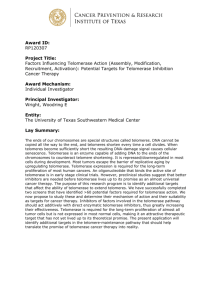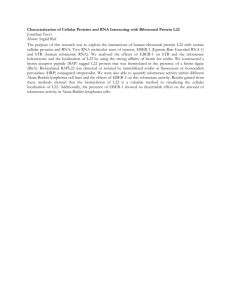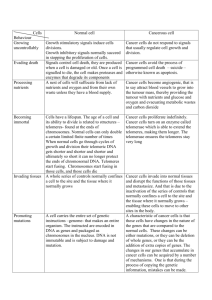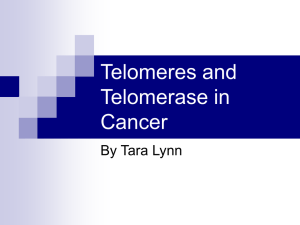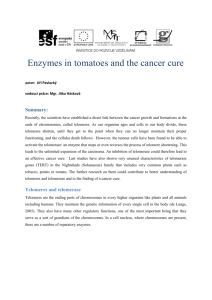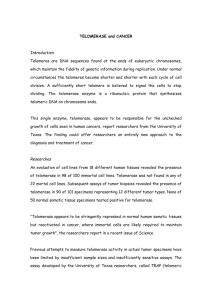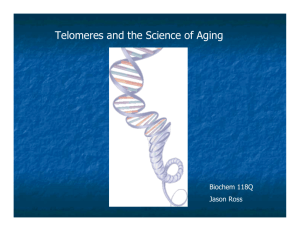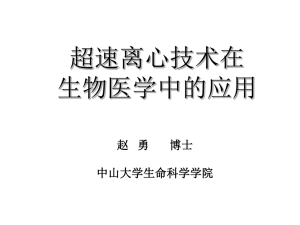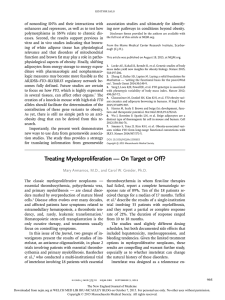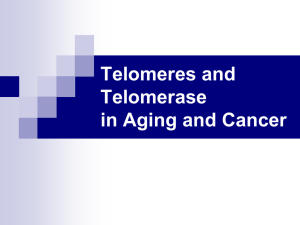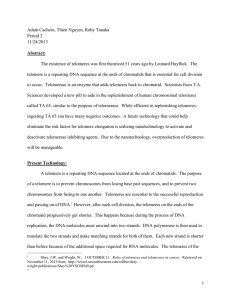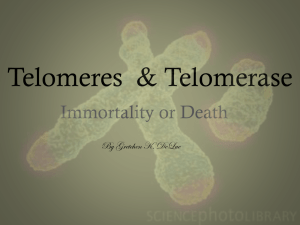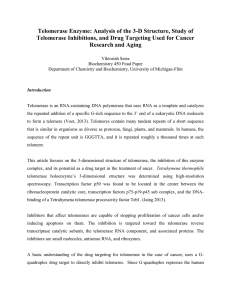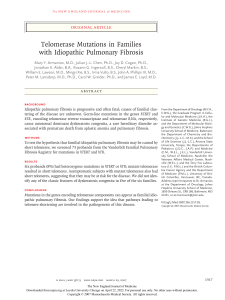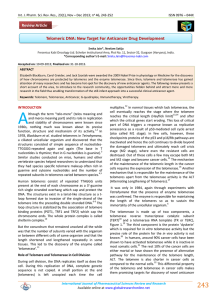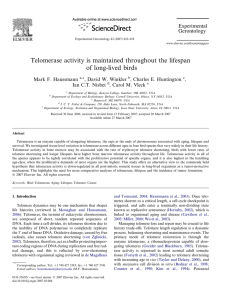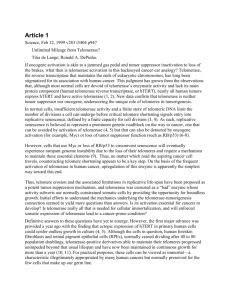Elizabeth Blackburn - Australian Society for Biochemistry and
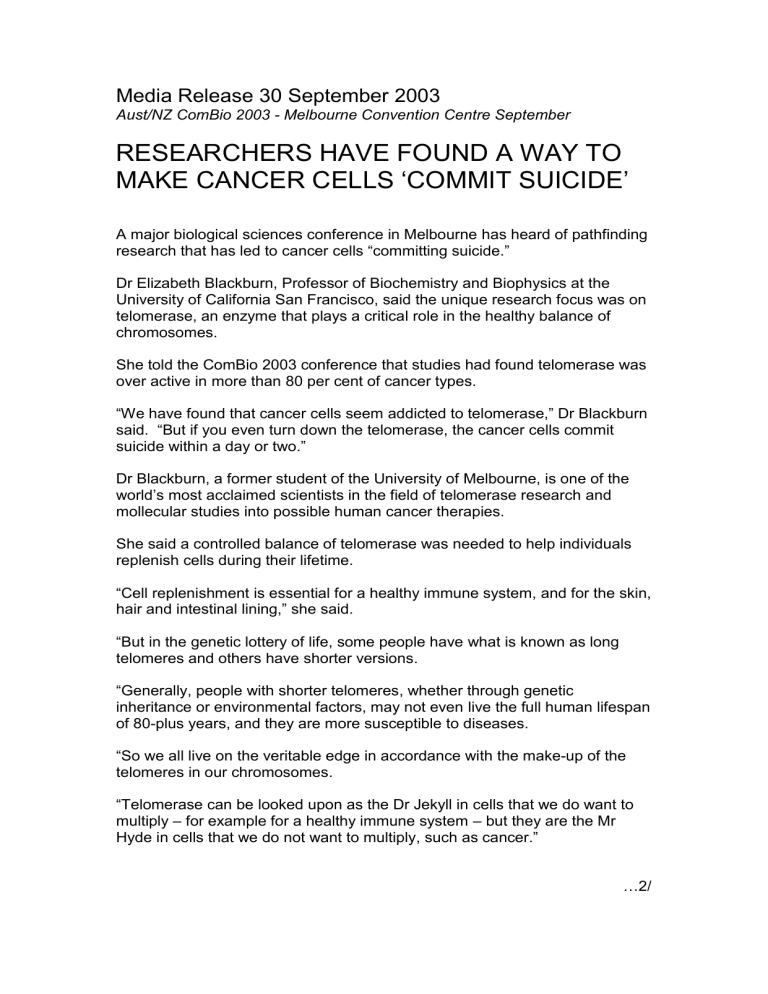
Media Release 30 September 2003
Aust/NZ ComBio 2003 - Melbourne Convention Centre September
RESEARCHERS HAVE FOUND A WAY TO
MAKE CANCER CELLS ‘COMMIT SUICIDE’
A major biological sciences conference in Melbourne has heard of pathfinding research that has led to cancer cells “committing suicide.”
Dr Elizabeth Blackburn, Professor of Biochemistry and Biophysics at the
University of California San Francisco, said the unique research focus was on telomerase, an enzyme that plays a critical role in the healthy balance of chromosomes.
She told the ComBio 2003 conference that studies had found telomerase was over active in more than 80 per cent of cancer types.
“We have found that cancer cells seem addicted to telomerase,” Dr Blackburn said. “But if you even turn down the telomerase, the cancer cells commit suicide within a day or two.”
Dr Blackburn, a former student of the University of Melbourne, is one of the world’s most acclaimed scientists in the field of telomerase research and mollecular studies into possible human cancer therapies.
She said a controlled balance of telomerase was needed to help individuals replenish cells during their lifetime.
“Cell replenishment is essential for a healthy immune system, and for the skin, hair an d intestinal lining,” she said.
“But in the genetic lottery of life, some people have what is known as long telomeres and others have shorter versions.
“Generally, people with shorter telomeres, whether through genetic inheritance or environmental factors, may not even live the full human lifespan of 80-plus years, and they are more susceptible to diseases.
“So we all live on the veritable edge in accordance with the make-up of the telomeres in our chromosomes.
“Telomerase can be looked upon as the Dr Jekyll in cells that we do want to multiply
– for example for a healthy immune system – but they are the Mr
Hyde in cells that we do not want to multiply, such as cancer.”
…2/
- 2 -
Dr Blackburn said her group of researchers had created a mutant telomerase that sits on the end of animal chromosomes preventing cell multiplication.
“In mouse studies, we have been able to make tumours regress as the mutant telomerase is copied into the DNA sequence of the animal,” she said.
“This is something cancer cells have never confronted in the past and they simply commit suicide very quickly.
“We are getting closer to perhaps unlocking one of the mysteries of cancer growth. However, the challenge is to determine how we can inject the mutant telomerase into human cancer patients without zapping good and innocent cells.
“One possible prospect in human studies is with cancer of the bladder.
Bladder cancer, which is in a confined area of the body, is one of the most common forms of cancer.
“This would seem a likely place to study the effect of mutant telomerase on human cancer without impacting on the rest of the system.”
Dr Blackburn said studies into telomerase could also throw new light on the causes of ageing and help people lead longer and healthier lives.
She is a keynote speaker at ComBio 2003, a joint meeting of the:
Australian Society of Biochemistry and Molecular Biology;
Australia and New Zealand Society for Cell and Developmental Biology;
Australian Society of Plant Scientists;
New Zealand Society for Biochemistry and Molecular Biology; and
New Zealand Society of Plant Physiologists.
The conference will run from until Thursday.
For interview:
Dr Elizabeth Blackburn is available for interview. To arrange, please call
Trevor Gill on 0418 821948
